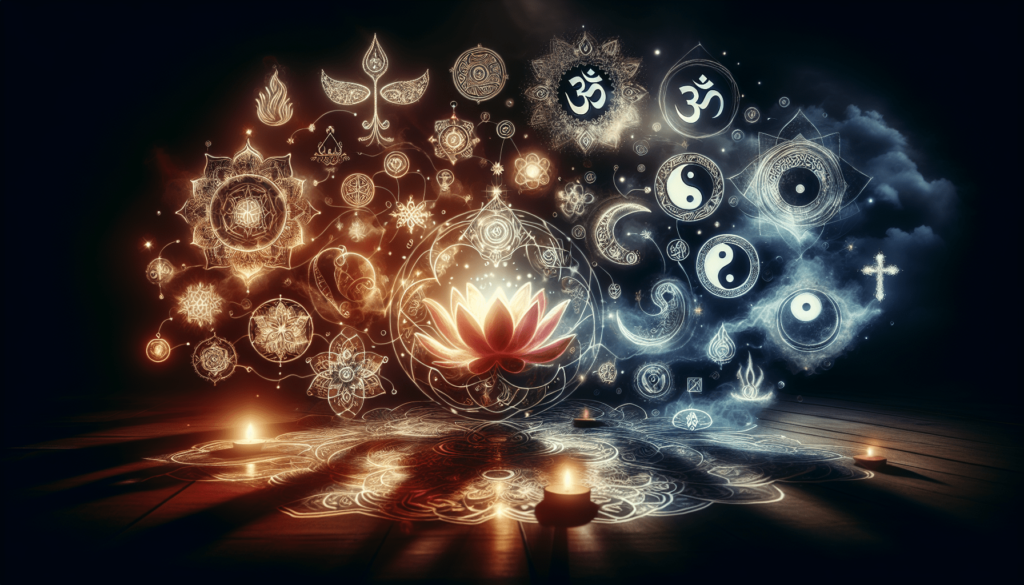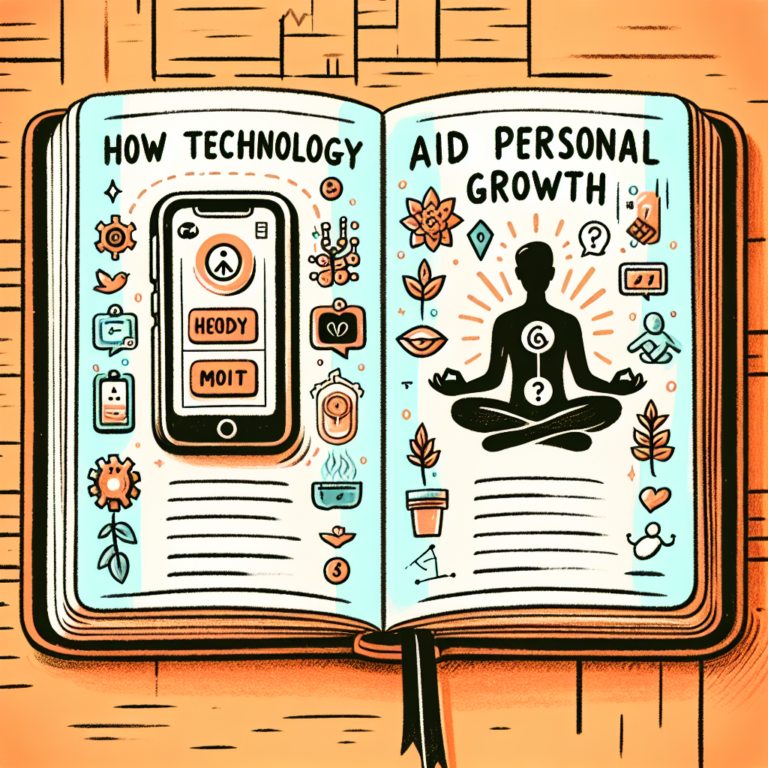The Role Of Spirituality In Finding Inner Peace And Purpose
In your quest for inner peace and purpose, it can be incredibly valuable to explore the role of spirituality. While spirituality can mean different things to different people, it often involves seeking a deeper connection with oneself, others, and something greater than oneself. By embracing spiritual practices such as meditation, prayer, or engaging in meaningful rituals, you may discover a profound sense of peace and clarity that can guide you towards your true purpose in life. In this article, we will explore the transformative power of spirituality and how it can contribute to finding inner peace and purpose.

Understanding Spirituality
Spirituality is a concept that can have different meanings for different individuals. It is a deeply personal and subjective experience that involves seeking a connection with something greater than oneself. While spirituality is often associated with religious beliefs and practices, it can also exist independent of any specific religious affiliation.
Exploring different definitions of spirituality
Spirituality encompasses a wide range of beliefs and practices, making it difficult to define in a singular way. For some, spirituality involves a belief in a higher power or divine being, while for others it may be more about connecting with nature or the universe. It can be seen as a way to explore the meaning and purpose of life, as well as a means to find inner peace and fulfillment.
The connection between spirituality and religion
While spirituality and religion are often intertwined, they are not the same thing. Religion typically involves adherence to specific doctrines and rituals, while spirituality is more personal and individualistic. One can be spiritual without being religious, and vice versa. Religion can provide a structured framework for expressing one’s spirituality, but it is not a prerequisite for spiritual experiences.
How spirituality differs from other aspects of life
Spirituality differs from other aspects of life in that it deals with the intangible and transcendent. While other aspects of life, such as career, relationships, and personal interests, are focused on the here and now, spirituality delves into deeper questions about the nature of existence and our place in the world. It is an exploration of the soul and the search for meaning beyond the material realm.
Seeking Inner Peace
Inner peace is a state of being that involves a sense of calm and tranquility, free from inner conflicts or disturbances. In our fast-paced and often stressful world, finding inner peace can be a challenge. However, spirituality can play a significant role in achieving inner peace and promoting overall well-being.
Identifying sources of stress and unrest
Before seeking inner peace, it is essential to identify the sources of stress and unrest in your life. This may include external factors such as work or relationship issues, as well as internal factors such as negative thought patterns or unresolved emotions. By recognizing these sources, you can begin to address them and create space for inner peace to flourish.
The impact of inner peace on overall well-being
Inner peace has a profound impact on our overall well-being. When we are at peace within ourselves, we experience reduced levels of stress, improved physical health, and enhanced emotional resilience. Inner peace allows us to navigate life’s challenges with grace and equanimity, making it easier to maintain healthy relationships, achieve goals, and live a fulfilled and meaningful life.
Techniques for cultivating inner peace
Cultivating inner peace is a lifelong journey, but there are several techniques that can help along the way. Meditation, for example, is a powerful tool for quieting the mind and cultivating inner stillness. Regular meditation practice can help to reduce stress, increase self-awareness, and foster a sense of inner peace. Other techniques such as mindfulness, breathwork, and engaging in activities that bring joy and fulfillment can also contribute to the cultivation of inner peace.
Finding Purpose
Finding purpose in life is a fundamental human need. It is the driving force behind our actions, goals, and aspirations. Spirituality plays a vital role in the search for purpose, as it offers a framework for exploring deeper questions about meaning and fulfillment.
Understanding the importance of purpose in life
Having a sense of purpose gives our lives meaning and direction. It brings clarity to our goals and actions, and provides a sense of fulfillment and satisfaction. Without a clear purpose, we may feel lost or adrift, lacking motivation and direction. Spirituality can help us uncover our purpose by connecting us with our inner selves, guiding us towards what truly matters to us, and aligning our actions with our values and beliefs.
Methods for discovering personal purpose
Discovering personal purpose is a journey of self-discovery. It involves reflecting on our strengths, passions, and values, and exploring what brings us joy and fulfillment. Journaling, engaging in meaningful conversations, and seeking guidance from mentors or spiritual teachers can be helpful in this process. Exploring different interests and trying new experiences can also provide valuable insights into our true purpose.
Aligning spirituality with one’s sense of purpose
Spirituality can be a powerful tool for aligning our actions and choices with our sense of purpose. By connecting with our spiritual beliefs and practices, we can gain clarity and guidance on how to live a life aligned with our values and principles. Spirituality can provide a moral compass, helping us make decisions that are in line with our higher selves and contribute to our sense of purpose and fulfillment.

The Intersection of Spirituality and Mindfulness
Mindfulness is the practice of being fully present and aware of our thoughts, feelings, and sensations in the present moment, without judgment. It cultivates a state of non-reactivity and acceptance, allowing us to engage with life’s experiences with greater clarity and equanimity. Mindfulness and spirituality are closely intertwined, as both involve a deepening of self-awareness and a connection to something greater than oneself.
Defining mindfulness and its relation to spirituality
Mindfulness is often associated with Eastern spiritual traditions such as Buddhism, where it is a core practice. However, mindfulness can also be practiced outside of any specific religious context, as it is a universal practice that can benefit individuals of all backgrounds. While mindfulness is not inherently spiritual, it can enhance our spiritual experiences by quieting the mind and opening us up to deeper levels of self-awareness and connection.
The role of mindfulness in achieving inner peace and purpose
Mindfulness is a powerful tool for achieving inner peace and finding purpose. By cultivating present-moment awareness, we become better equipped to observe and understand our thoughts, emotions, and desires. This awareness allows us to let go of attachments and limiting beliefs that may be preventing us from experiencing inner peace or pursuing our true purpose. Mindfulness also helps us to live in alignment with our values and intentions, fostering a greater sense of fulfillment and purpose in our lives.
Practices and exercises for combining spirituality and mindfulness
There are numerous practices and exercises that combine spirituality and mindfulness. Meditation, for example, can be a spiritual practice that promotes mindfulness and deepens our connection with something greater than ourselves. Engaging in activities such as yoga, walking in nature, or practicing gratitude can also cultivate a mindful and spiritual mindset. By bringing mindfulness into our spiritual practices and infusing spirituality into our mindful moments, we can enhance our overall well-being and sense of purpose.
Connecting with Higher Power
Connecting with a higher power is a deeply personal experience that can take many forms. The concept of a higher power varies across different spiritual traditions and can include deities, the universe, nature, or even the collective consciousness. Regardless of one’s specific beliefs, connecting with a higher power can bring comfort, guidance, and a sense of belonging.
Exploring different beliefs about a higher power
Beliefs about a higher power are diverse and can vary greatly from person to person. Some may believe in a personal God or deity who has a direct influence on their lives, while others may view the higher power as a collective energy or life force. Exploring different beliefs about a higher power can broaden our understanding and deepen our connection to something greater than ourselves.
Methods for establishing a personal connection with a higher power
Establishing a personal connection with a higher power often involves cultivating a sense of openness, receptivity, and surrender. Prayer, meditation, and rituals can be meaningful ways to connect with a higher power. Engaging in acts of service, spending time in nature, or immersing oneself in creative pursuits can also facilitate a connection to something larger than oneself. Ultimately, the goal is to find practices and experiences that resonate with our individual beliefs and help us establish a heartfelt connection.
The role of prayer and meditation in spiritual connection
Prayer and meditation are powerful practices for deepening our spiritual connection. Prayer is a way to communicate with a higher power, expressing our gratitude, desires, and concerns. Meditation, on the other hand, is a practice of stilling the mind and opening ourselves up to receive guidance and wisdom from a higher power. Both practices can bring a sense of peace, clarity, and connection, enhancing our spiritual journey.
Spirituality and Emotional Well-being
Spirituality plays a significant role in emotional well-being. It provides a framework for understanding and navigating our emotions, and offers support and guidance in times of emotional distress. Spirituality can be a source of comfort, strength, and resilience, helping us to cultivate emotional well-being and maintain a balanced and harmonious internal state.
Understanding the impact of spirituality on emotional health
Spirituality has a profound impact on emotional health. It provides a context for understanding the purpose and meaning behind our emotions, and helps us develop tools and practices for managing them. Spirituality encourages us to engage in self-reflection and self-awareness, which allows us to better understand the root causes of our emotions and respond to them in healthy and constructive ways. By embracing spirituality, we create a foundation for emotional well-being.
Spirituality as a coping mechanism for dealing with emotions
Spirituality can serve as a coping mechanism for dealing with difficult emotions. When faced with challenges or emotional distress, turning to our spiritual beliefs and practices can provide solace and guidance. Prayer, meditation, and mindfulness can help us navigate our emotions with equanimity and acceptance, allowing us to find inner peace and healing. Spirituality can also offer a sense of perspective, reminding us that our emotions are transient and part of the human experience.
Incorporating spirituality into emotional self-care practices
Incorporating spirituality into our emotional self-care practices can enhance our overall well-being. Engaging in activities that nurture our soul and spirit, such as spending time in nature, practicing gratitude, or immersing ourselves in creative pursuits, can foster emotional well-being. Seeking support from a spiritual community or finding solace in sacred texts and teachings can also provide comfort and guidance during times of emotional need.
Spirituality and Relationships
Spirituality can have a profound impact on our relationships with others. It fosters a sense of interconnectedness and compassion, allowing us to cultivate deeper and more meaningful connections with loved ones and the world around us. By infusing our relationships with spirituality, we can create a space for love, understanding, and growth.
How spirituality influences interpersonal connections
Spirituality influences interpersonal connections by fostering qualities such as compassion, kindness, and forgiveness. By recognizing the inherent worth and sacredness of all beings, spirituality encourages us to treat others with respect, empathy, and love. It helps us transcend our ego-driven desires and needs, and instead focus on the well-being and growth of the relationship as a whole. Spirituality enables us to see past superficial differences and connect on a deeper, soulful level.
Fostering spiritual connections with others
Fostering spiritual connections with others involves creating space for open and authentic communication, as well as shared experiences that align with our spiritual values and beliefs. Engaging in activities such as meditation or prayer together, having meaningful conversations about spirituality and personal growth, and participating in acts of service can all enhance spiritual connections with others. By creating an environment of trust, love, and acceptance, we can nurture profound and transformative relationships.
The role of forgiveness and compassion in spiritual relationships
Forgiveness and compassion are key elements of spiritual relationships. Spirituality teaches us to let go of grudges, resentment, and judgment, and instead cultivate forgiveness and compassion towards ourselves and others. By forgiving past hurts, we free ourselves from the emotional baggage that can hinder authentic connections. Compassion allows us to see the inherent humanity and inherent goodness in others, fostering a deeper sense of connection and understanding.
Spirituality as a Source of Strength
Spirituality serves as a source of strength, comfort, and resilience during times of adversity and challenges. It provides a sense of hope, meaning, and purpose, allowing us to face life’s struggles with courage and grace. By drawing upon our spiritual beliefs and practices, we can tap into an infinite wellspring of strength and inner resources.
The role of spirituality in overcoming adversity and challenges
Spirituality plays a crucial role in overcoming adversity and challenges by providing us with a sense of resilience and inner fortitude. It allows us to view challenges as opportunities for growth and transformation, rather than insurmountable obstacles. Spirituality instills in us a sense of faith and trust in a higher power or universal order, providing comfort and hope during difficult times. By nurturing our spiritual connection, we can find strength and guidance in the face of adversity.
How spirituality provides comfort and resilience
Spirituality provides comfort and resilience by offering a sense of solace and support in the face of adversity. It reminds us that we are not alone in our struggles and that there is a greater purpose and meaning behind our experiences. Spirituality can foster a deep sense of trust in the universe or a higher power, allowing us to surrender control and find peace in the midst of chaos. By drawing upon spiritual practices such as prayer, meditation, or seeking guidance from spiritual mentors, we can find comfort and resilience during challenging times.
Drawing strength from spiritual beliefs and practices
Drawing strength from spiritual beliefs and practices involves integrating them into our daily lives and using them as a source of inspiration and guidance. By aligning our actions and choices with our spiritual principles, we tap into a wellspring of strength, wisdom, and support. Regularly engaging in practices such as prayer, meditation, or reading sacred texts can deepen our spiritual connection and provide us with the strength and resilience needed to navigate life’s challenges.
Integrating Spirituality into Daily Life
Integrating spirituality into daily life allows us to create a harmonious and balanced existence. By infusing our everyday routines and interactions with spiritual principles and practices, we cultivate a sense of purpose, fulfillment, and inner peace.
Incorporating spiritual practices into daily routines
Incorporating spiritual practices into daily routines ensures that we prioritize our spiritual well-being alongside other responsibilities. This can involve setting aside time each day for meditation, prayer, or reflection. Creating a sacred space in our homes where we can engage in spiritual practices can also be beneficial. By making spirituality a non-negotiable part of our daily lives, we create space for growth, connection, and inner peace.
Applying spiritual principles in work and personal life
Applying spiritual principles in our work and personal life involves aligning our actions and choices with our spiritual values and beliefs. This may mean approaching our work with a sense of integrity, compassion, and service. In our personal relationships, it involves treating others with love, respect, and kindness. By infusing our daily interactions with spiritual principles, we create a more harmonious and fulfilling life.
Finding balance between spirituality and other responsibilities
Finding balance between spirituality and other responsibilities is essential for maintaining overall well-being. It is important to recognize that spirituality is not separate from other aspects of life, but rather an integral part of it. By setting boundaries, prioritizing self-care, and cultivating mindfulness, we can strike a balance between our spiritual practices and other obligations. It is about finding harmony and integration, rather than compartmentalizing spirituality.
Continuing the Spiritual Journey
The spiritual journey is an ongoing process of growth, self-discovery, and transformation. It is a lifelong commitment to exploring and deepening our spiritual connection. By embracing the inherent impermanence and fluidity of spirituality, we open ourselves up to continuous growth and development.
Embracing lifelong spiritual growth and development
Embracing lifelong spiritual growth and development involves cultivating a sense of curiosity, openness, and willingness to learn. It requires us to constantly question and reevaluate our beliefs, as well as actively seek out new experiences and perspectives. By remaining open to new insights and challenges, we can continue to deepen our spiritual connection and expand our understanding of the world.
Exploring different paths and traditions of spirituality
There is a vast array of paths and traditions within spirituality, each offering unique insights and practices. Exploring different paths and traditions allows us to expand our horizons and find what resonates with our individual beliefs and experiences. Whether it is through reading books, attending workshops, or engaging in dialogues with others, embracing diversity within spirituality enriches our own spiritual journey.
Seeking guidance and mentorship in one’s spiritual journey
Seeking guidance and mentorship can provide valuable support and guidance in our spiritual journey. Finding a spiritual mentor or joining a spiritual community allows us to learn from those who have walked the path before us, gaining insights and inspiration along the way. Engaging in meaningful conversations and seeking answers to our questions can help us navigate the challenges and uncertainties that may arise on our spiritual journey.
In conclusion, spirituality is a deeply personal and subjective experience that offers us the opportunity to find inner peace and purpose. By exploring different definitions of spirituality, understanding its connection to religion, and recognizing how it differs from other aspects of life, we can gain a deeper understanding of this important aspect of human existence. Seeking inner peace, finding purpose, and integrating spirituality into our daily lives are all powerful ways to cultivate a more fulfilling and meaningful life. By embracing mindfulness, connecting with a higher power, and nurturing our emotional well-being and relationships, we can tap into the strength, resilience, and wisdom that spirituality provides. While the spiritual journey is a lifelong commitment, by continuing to seek personal growth, exploring different paths of spirituality, and seeking guidance from mentors, we can embark on a transformative and enriching journey of self-discovery and spiritual evolution.







